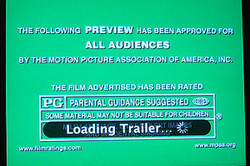Education Business Plan Competitions: Crafting the Perfect Pitch
Congratulations to all the semi-finalists and finalists of the various education business plan competitions this spring. I thought I would do a follow-up to my previous post: Five Tips for Ed-Tech Startups Entering Business Plan Competitions.
 When you reach the finals of a business plan competition, you’ll probably have to pitch your startup in front of a panel of judges. And you may be wondering, “How the heck am I supposed to give an eight-minute (or less) presentation that will convey everything there is to know about my startup?”
When you reach the finals of a business plan competition, you’ll probably have to pitch your startup in front of a panel of judges. And you may be wondering, “How the heck am I supposed to give an eight-minute (or less) presentation that will convey everything there is to know about my startup?”
The answer? You’re not.
There’s no way you’ll be able to cover everything you want to say. And if you try, you’ll probably run out of time and get cut off mid-sentence, before you even get to the heart of your pitch. That’s not good.
 An advisor once told us: “Your pitch is your movie trailer. Keep it punchy and short. The goal of a trailer is to get people to watch the movie. The goal of your pitch is to get people interested in learning more about your startup. Cramming too much into a pitch is like cramming too many scenes into a movie trailer. People get overwhelmed and they tune out.”
An advisor once told us: “Your pitch is your movie trailer. Keep it punchy and short. The goal of a trailer is to get people to watch the movie. The goal of your pitch is to get people interested in learning more about your startup. Cramming too much into a pitch is like cramming too many scenes into a movie trailer. People get overwhelmed and they tune out.”
I think that’s great advice. Remember, in most cases there will be a Q&A following your presentation. Use the presentation to get the judges thinking, tee up the Q&A, and get the conversation going.
Our advisor also gave us the following outline for crafting a solid pitch. I’m sharing it, because this presentation flow has worked really well for us in the past, especially when there’s a tight time limit. Following this outline helps us make sure that we’re getting the essentials across about ProfessorWord in the time that we have.
For an eight-minute pitch, here are the eight points you need to get across:
First, start by convincing the judges of the value being provided by your startup.
1. What’s the problem that you’re trying to solve? It’s important that the listener understands and agrees that there’s a problem. If they don’t, it will ll be hard to convince them that your solution is worthwhile.
2. What’s your solution to the problem? Explain (briefly!) how your product/service will address the problem.
3. What’s your value proposition? Explain why you are better/faster/cheaper/more effective, etc. than current solutions. You need the listener to buy in to the value of your product/service.
Then, sell them on the business opportunity of your startup.
4. What’s the market opportunity? How big of an opportunity is this? How much growth? Is the market big enough to be worth pursuing?
5. What’s your go-to-market strategy? How will you act on this great opportunity? What’s your plan for marketing/sales? How will you find/retain customers? How do you compare to existing competitors? What type of competitive advantages do you have?
6. What’s your current status and what’s your timeline? What have you done to date? What successes have you achieved? What are the major milestones that you’re working towards?
Finally, sell them on you! Why are you the perfect person/team to run this startup?
7. Who is the team? Who are you? What past experiences have you had that will help you with your startup?
8. What are your financial projections? How do you plan to grow? And if appropriate, how do you plan to use the prize money and/or what’s your fundraising plan?
Of course, you can have more than one slide per point. In fact, I personally prefer having more slides, so that I can keep each slide simple: just one idea per slide. But the flip side is that you have to be extremely disciplined about timing and practicing your pitch to make sure you don’t exceed the time limit.
Best of luck to everyone this awards season! Let me know if you have questions @professorword.
Until next time,
See also:
- Five Tips for Ed-Tech Startups Entering Business Plan Competitions
- The Best Presentation Advice We’ve Ever Received
- Luck Matters When You’re an Ed-Tech Entrepreneur
- How to Begin Your Ed-Tech Startup Journey Today
- Rejection Therapy for Ed-Tech Entrepreneurs and Startups
Have questions or feedback? Comment below or let me know on Twitter @professorword!
Photo Credit: Flickr user Official Leweb Photos and Sarchi

Education Business Plan Competitions is a great way for educational start-up to have that opportunity they wanted. And every start-up also need to know market strategy, and market opportunity they have. Need, Opportunity, And Why Us are three things every investor need to know before they choose to invest.
Thanks for sharing the article, and more importantly, your personal experienceMindfully using our emotions as data about our inner st https://vidmate.onl/download/ ate and knowing when it’s better to de-escalate by taking a time out are great tools. Appreciate you reading and sharing your story, since I can certainly relate and I think others can too
Education Business Plan Competitions is a great way for educational start-up to have that opportunity they wanted. And every start-up also need to know market strategy, and market opportunity they have. Need, Opportunity, And Why Us are three things every investor need to know before they choose to invest.